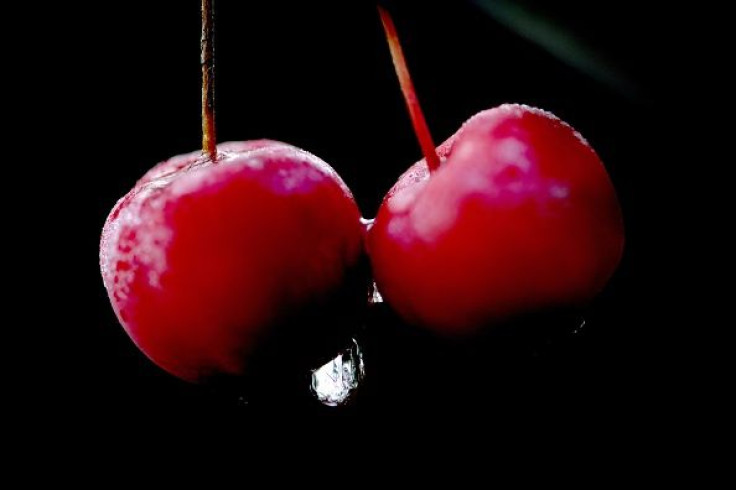The Myth Of Virginal Purity: Why We Should Let People Decide What Virginity Means On Their Own Terms

Virginity is a concept that many cultures have prized for a long time. Though the term “virgin” is used to describe both men and women who have not had a physical sexual experience, women seem to be the only ones responsible for protecting it. The construct of sexual purity and virginity should be defined by the individual, because if it's imposed by social or cultural standards, the outcomes can be harmful for both men and women.
Women Should Define Virginity On Their Own Terms
The social construct of virginity probably won’t disappear anytime soon, but it’s important to understand that people have a right to define what virginity means to them, Melody Li, a Texas-based licensed marriage and family therapist, told Medical Daily.
“People have the right to protect or reject the ideas of virginity with what works for them in accordance to their morals and values,” said Li. “I would make sure that people, especially young people, explore what would be a healthier and more affirming view of their sexuality.”
Virginity Origin Is Not Scientific
According to Anke Bernau, a professor in medieval literature and culture at The University of Manchester, the notion of virginity in Western culture dates back very far, "To identify an ‘originary’ point would be very difficult indeed," she tells Medical Daily.
Bernau says the obsession with virginity is tied to the position of women in patriarchal societies. "Female virginity is important because it guarantees paternity — the man can be pretty sure the child is his if his wife/partner has had no other partner before him — and this is also related to questions of inheritance," said Bernau.
But fast forward to modern times and the idea of virginity is still rampant and praised in our society, despite the fact that its so-called medical backing, the hymen, a thin membrane that covers the vaginal opening, is not a quantifiable way to define virginity.
A woman’s hymen can break without sexual penetration during an intense workout, for example, or while riding a horse. So a woman without a hymen can still be a virgin.
It Objectifies Women’s Bodies
The global community still sees virginity as an asset or a prize — something that can be tangible. In many cultures, the so-called gift of a virgin is highly regarded and respected. Fathers give their daughters away to their husbands for marriage, seemingly transferring ownership of her body from her family to her husband.
Bernau adds that female virginity says something about male power: "A virginal daughter is proof of the father’s (or brother’s, or other male relative’s) ability to exert his authority over her. A chaste wife is often considered evidence of the husband’s sexual, moral, and spiritual authority."
This diminishes a woman's sense of self-agency, which refers to an individual's ability to make choices and decisions for themselves. Usually in societies where a woman's virginity is "owned," she usually doesn't have that much power in other aspects of her life — politcal or social. By allowing women to have control over their virginity, it provides them with the ability to have control over bodies and their own resources.
Women have sometimes taken this value into their own hands. In 2009 a 22-year-old woman from San Diego sold her virginity for $3.8 million dollars. Many people were shocked and appalled that she decided to do this, despite it being her choice. This instance demonstrates the immense value that people place on sexual pureness.
Of course there are instances where male virginity can be important, Bernau adds, "but it is never really as central to the conversation as female virginity tends to be," she says,
Virginity Definition May Alienate Homosexuals
The conventional idea of virginity leaves out homosexuals, who make up 3.8 percent of US population. Now, it would be silly to think that gay and lesbian couples remain virgins all of their lives because they’re not sleeping with the opposite gender, right? Almost no one thinks that, but the conventional definition of virginity loss is penetrative sex between a man and a woman. This exclusion fails to take into account the experiences of homosexuals.
Some Women Want To Redefine Their First Sexual Experience
People often equate losing their virginity with the first time they have sex, but some women choose not to identify their first sexual experience with the loss of their virginity, especially when they’re victims of rape.
In the book, Virginity Lost: An Intimate Portrait of First Sexual Experiences, the author, Laura M. Carpenter, interviewed both men and women about their sexual experiences. In the instances of unwanted sexual experiences, Carpenter finds that women were more likely to not consider coerced sex as the loss of their virginity.
“Women are more likely to say that if their experience was forced then their virginity wasn’t lost,” Carpenter tells Medical Daily. She also found in her research that some people even wanted to become virgins again after a bad relationship or decided to become more conservative in their religion.
It can be both mentally and emotionally draining for people to lose control over their own circumstances, especially virginity. People — women, men, gay, or straight — gain authority over their own bodies by deciding when and how losing their virginity takes place.



























